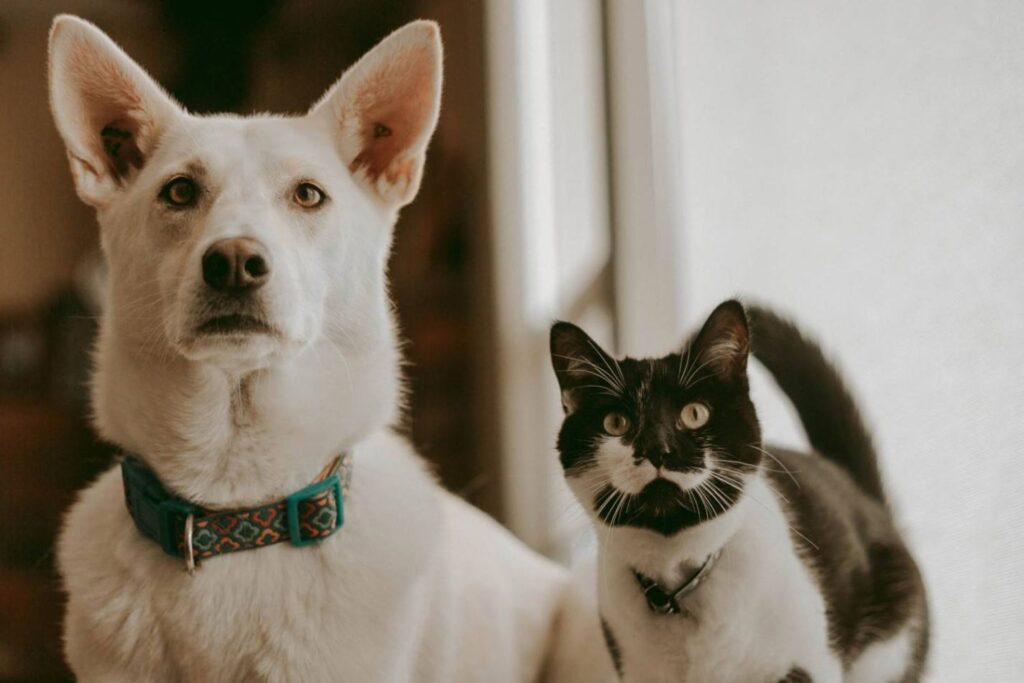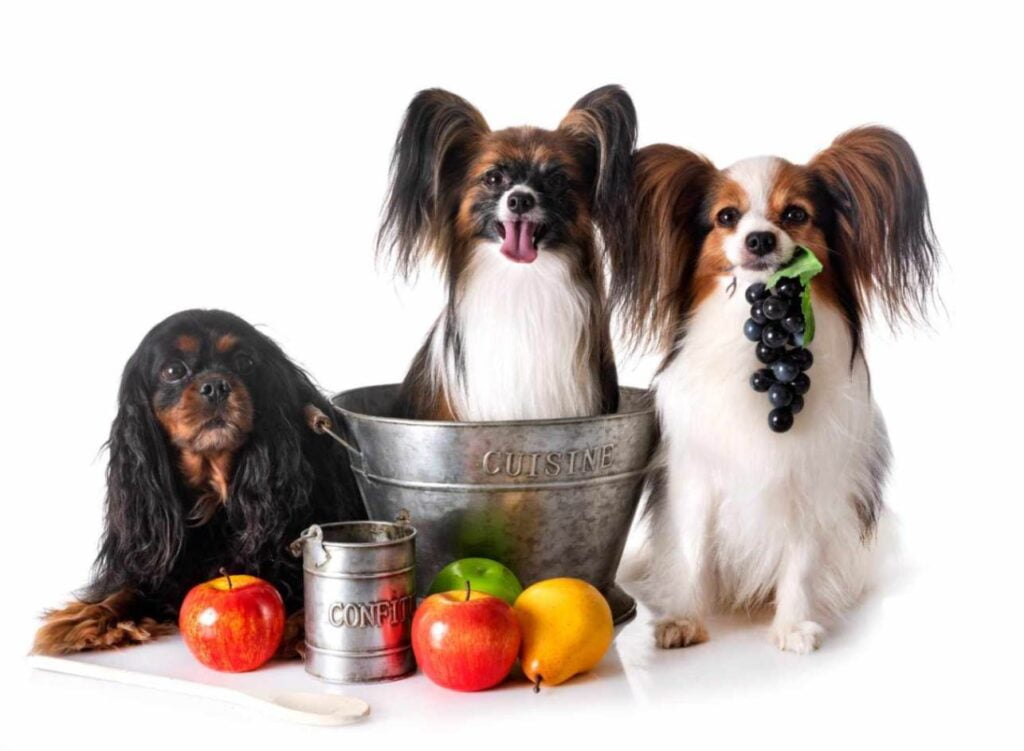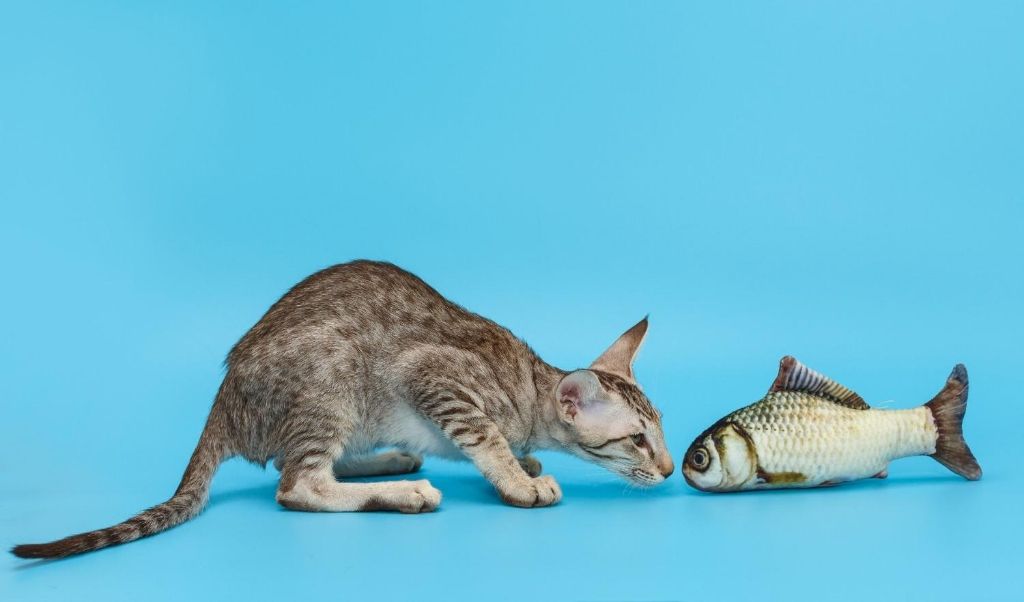Heart health is essential for everyone, even for our cats and dogs. Pets, like us, benefit significantly from a balanced diet that improves their cardiovascular health. Let’s look at the essentials of a balanced diet for pet heart health, learning what our canines and felines can eat for a healthy heart.

Importance of Diet and Nutrition in Maintaining Pet Heart Health
Maintaining a balanced diet and nutrition is essential for improving heart health in dogs and cats. Here are five fundamental reasons why food and nutrition are crucial in keeping our pet’s heart healthy:
Balanced Nutrient Intake
Feeding dogs and cats a balanced diet ensures they get the nutrients, vitamins, and minerals. They are essential for good cardiovascular health. A proper diet promotes healthy heart function and helps prevent deficiencies that may lead to cardiovascular problems.
Weight Management
Keeping a healthy weight is critical for avoiding obesity-related cardiac problems in our pets. A well-balanced diet, along with proper portion management, aids in preventing excessive weight gain, lowering the risk of heart-related illnesses such as hypertension, cardiovascular disease, and diabetes.
Controlled Sodium Consumption
Excess sodium consumption can cause high blood pressure and fluid retention, increasing the burden on the heart and leading to heart diseases. Providing pet diets with regulated salt levels helps to maintain normal blood pressure and lowers the risk of heart disease.
Omega-3 Fatty Acids
Omega-3 fatty acids in some fish oils and supplements are anti-inflammatory and can aid pet heart health. Including omega-3 fatty acids in a pet’s food can help to decrease inflammation, enhance circulation, and minimize their risk of cardiovascular disease.
Heart-Healthy Components
Pet foods with heart-healthy components, including lean proteins, whole grains, fruits, and vegetables, promote cardiovascular health. These components provide vital nutrients, antioxidants, and fiber that boost heart function, minimize oxidative stress, and support overall well-being.
6 Things You Can Feed Your Dog for Good Heart Health

A well-balanced diet rich in heart-healthy foods can improve cardiovascular function and lower the risk of heart diseases in our dogs. Here are the top six things you can give your dog to promote a healthy heart:
Eggs
Eggs include fatty acids, which aid in cardiovascular health and tissue healing. Don’t worry about cholesterol; dogs do not suffer from cholesterol-related ailments like humans do!
Salmon
Fatty seafood like salmon is excellent for your dog! These molecules, which contain omega-3 fatty acids and taurine, are anti-inflammatory, promote cardiac and vascular function, and can help decrease blood pressure.
Lean Protein Sources
Lean protein sources, such as chicken, turkey, lean beef, and fish, include vital amino acids required for muscle development, repair, and general health. These proteins are low in saturated fat and cholesterol, making them excellent alternatives for promoting heart health and lean muscle mass.
Fruit and Vegetable
Fruits and vegetables are a great snack alternative for keeping your pet’s heart healthy. They are high in antioxidants, vitamins, and minerals, which promote general health and may lessen the risk of cardiovascular disease in dogs. Blueberries, strawberries, spinach, kale, carrots, and sweet potatoes are all wonderful alternatives for supplying critical nutrients and fiber while improving cardiovascular health.
Whole Grains
Whole grains like brown rice, oats, quinoa, and barley can benefit your dog’s cardiovascular health by delivering complex carbs, fiber, and critical minerals. They can help control blood sugar levels, enhance digestion, and boost cardiovascular health.
Green Leafy Vegetables
Green vegetables, such as spinach, kale, and broccoli, are high in vitamins, minerals, and antioxidants, which promote heart health and general well-being. These veggies are low in calories and fiber, making them ideal for maintaining a healthy weight and lowering your risk of cardiovascular disease.
6 Things You Can Feed Your Cat for Good Heart Health

A rounded-up meal of healthy protein, omega-3, and vitamins is essential for your cat’s purr and heart. Here are six things you can feed your cat for good heart health:
High-Quality Protein
High-quality protein foods, like lean meats, poultry, and fish, are crucial for your cat’s cardiovascular health. These proteins include the amino acids required for muscle development, repair, and overall health. They are low in saturated fat and cholesterol.
Omega-3 Fatty Acids
Omega-3 fatty acids in your cat’s food can promote heart health by decreasing inflammation, increasing circulation, and lowering blood pressure. They are found in fatty fish such as salmon, mackerel, and sardines and in fish oil supplements.
Taurine-Rich Foods
Taurine-rich foods greatly help keep our pet’s heart healthy. Taurine is a necessary amino acid for cardiac function in cats. Moreover, ensure your cat’s diet includes taurine-rich foods such as meat, fish, and commercial cat meals designed to suit their nutritional requirements.
Fruits and Vegetables
Small quantities of fruits and vegetables can supply critical vitamins, minerals, and antioxidants for your cat’s heart health. Blueberries, spinach, kale, and carrots are fantastic nutritional alternatives that are low in calories.
Wet Foods
Adding wet food to your cat’s diet helps improve hydration and renal function, promoting cardiovascular health. Additionally, wet food is lower in carbs and higher in protein than dry kibble, making it a healthier supplement to your cat’s diet.
Limited Treats
While occasional nibbles can be a fun way to bond with your cat, however, keep high-calorie treats to a minimum and go for healthy and natural options. Look for sweets made with high-quality ingredients and avoid ones rich in sugar, salt, and artificial additives.
A Hearty Bite of Health

Feeding our dogs and cats a balanced diet that satisfies their nutritional requirements is critical for heart health. Additionally, it also prevents heart disease. Consulting with a veterinarian may assist pet parents in developing individualized food programs based on their pet’s particular needs, guaranteeing appropriate nutrition for a healthy heart and a happy life.

0 Comments